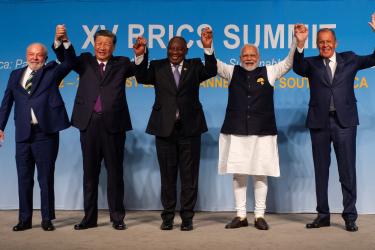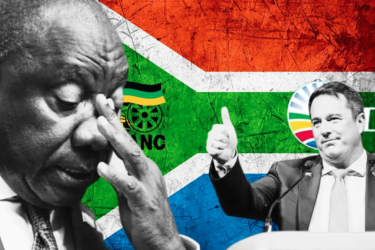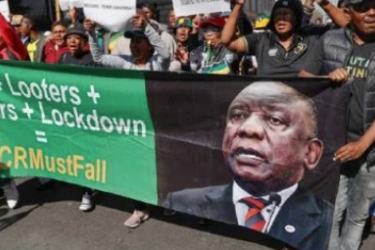South Africa

From South Africa to Syria: The rising perils for Palestine solidarity
Patrick Bond — The sudden overthrow of the Assad regime in Syria comes at a time that poses profound challenges for solidarity with Palestine in South Africa.

South Africa: The populist threat and the response of the left
Amandla! — The ANC-DA Alliance is more deeply committed to neoliberalism than even its predecessors. The need for a consolidated voice of the working class and the poor is greater than ever.

Multi-polarity: A new alignment?
Jerry Harris — Some see multi-polarity as a new stage of non-alignment, and even the creation of an anti-imperialist bloc. But the economic and political elites of the Global South are too deeply tied to transnational capitalism to be truly independent.

South Africa’s ‘Government of Neoliberal Unity’ is constructed on shaky ground
Patrick Bond — Given declining living standards, an elite transition will not stick nearly as well as Nelson Mandela’s 1994-99 reign. It may be a matter of just months before the centre can no longer hold.

ANC’s crushing electoral defeat: A nightmare of coalitions, splits and neoliberal crisis
Gunnett Kaaf — Voters have rejected the ANC, but other mainstream parties are not viable alternatives to exit the neoliberal crisis. That’s why South Africa is in the throes of a deepening political and social crisis.

On the eve of the elections, South Africans deserve better — and it exists
Shawn Hattingh — The people of South Africa deserve better and, in some places in the world, we can see glimpses of a better system being built by people themselves, without handing power to politicians.





